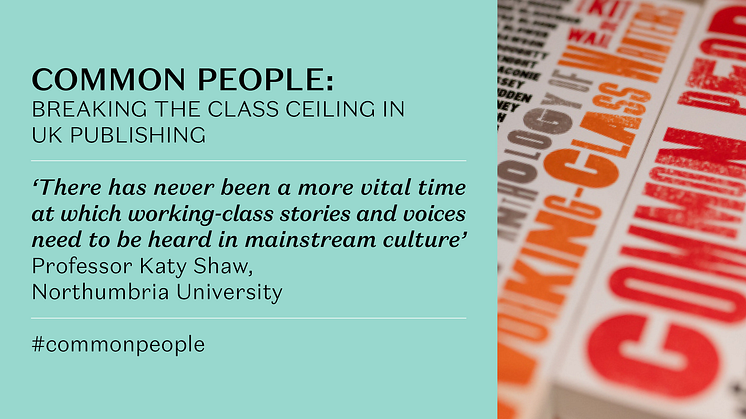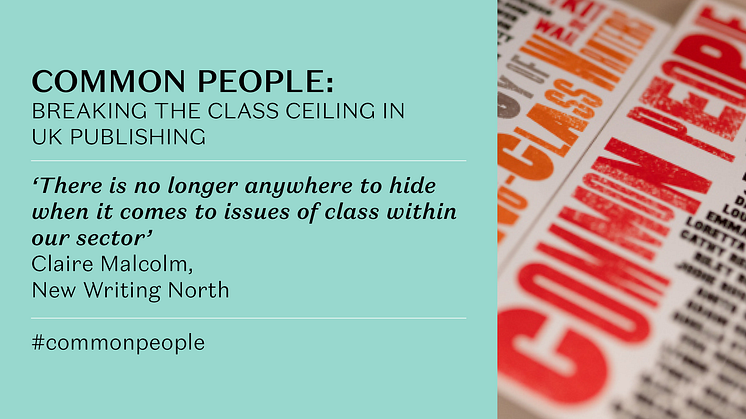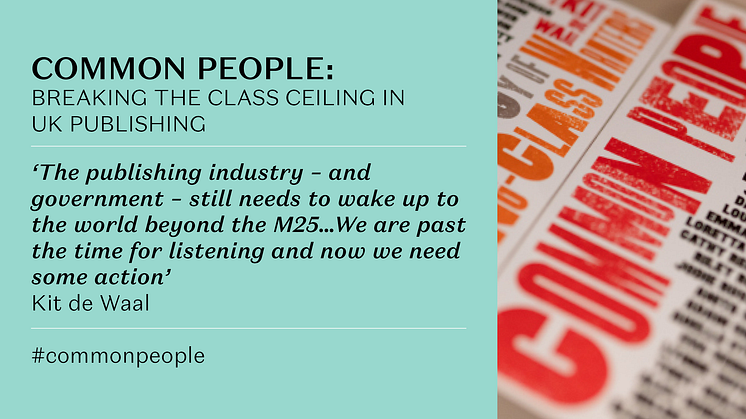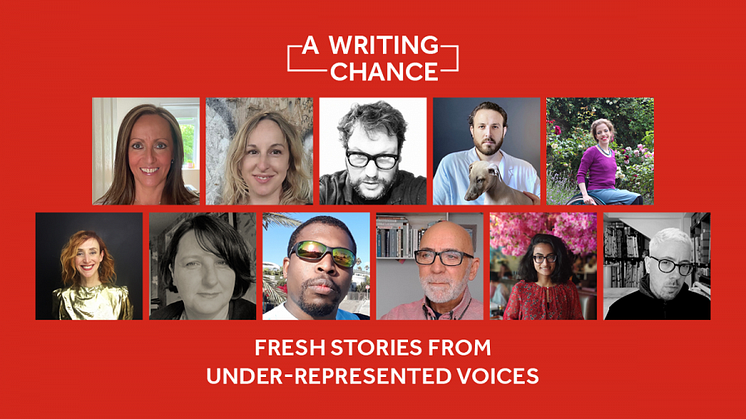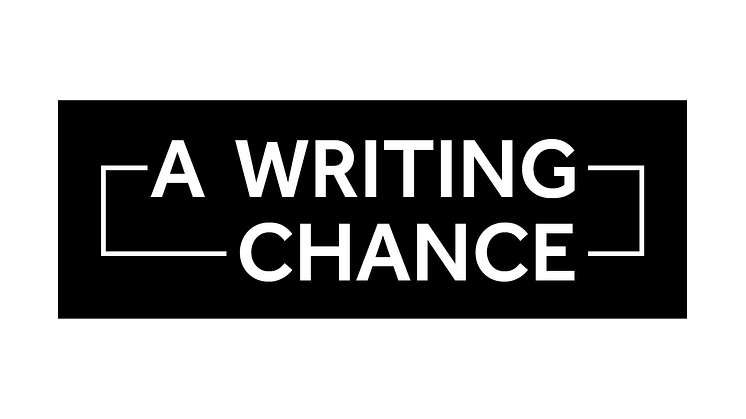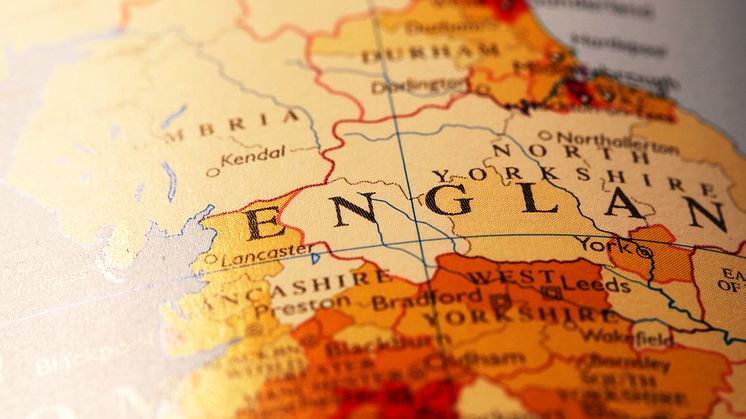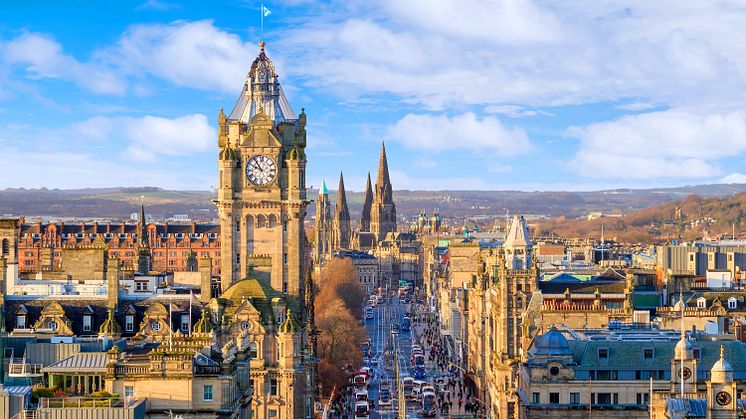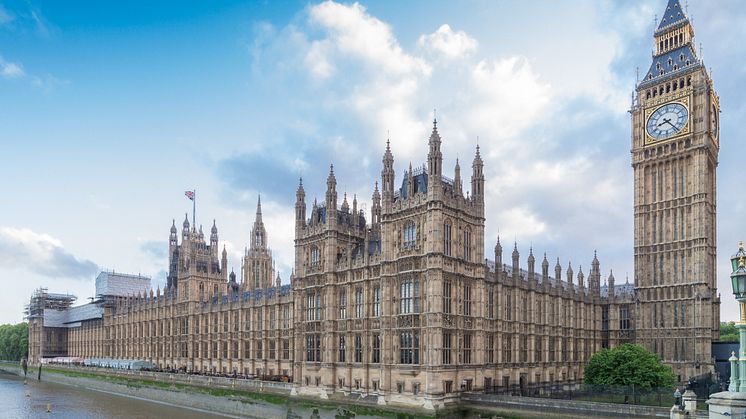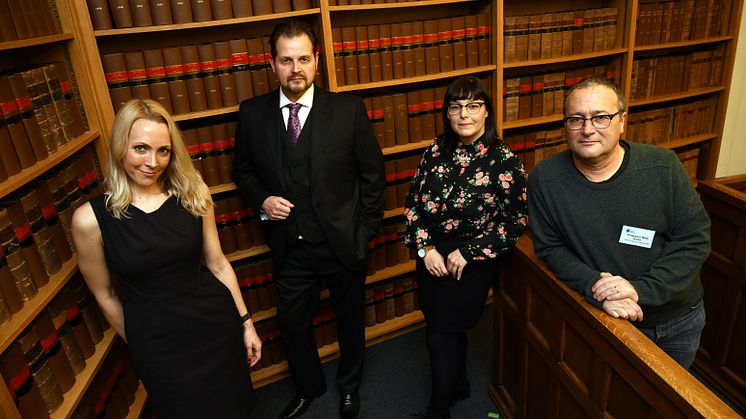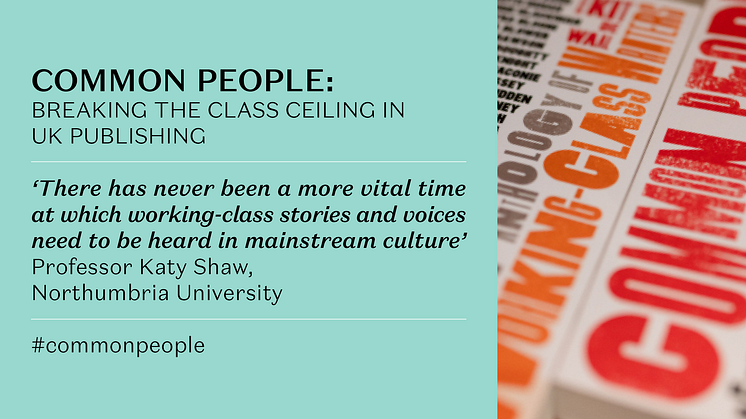
Press release -
Common People: New report exposes class ceiling in the UK publishing industry - and what it will take to smash it
A Professor from Northumbria University has called for major changes to the publishing industry to make it more accessible for writers from diverse and working-class backgrounds.
Katy Shaw, Professor of Contemporary Writings at Northumbria, is author of the Common People report, which announced its findings today, on International Workers Day (1 May 2020).
The report is based on research carried out by Professor Shaw into the Common People project – a collaboration between the UK’s seven regional writing development agencies, launched by New Writing North and Writing West Midlands in 2018.
 During her research, Professor Shaw interviewed the 17 emerging working-class writers who featured in the Common People (2019) anthology, edited by British writer Kit de Waal, as well as professionals working within the publishing industry.
During her research, Professor Shaw interviewed the 17 emerging working-class writers who featured in the Common People (2019) anthology, edited by British writer Kit de Waal, as well as professionals working within the publishing industry.
In the Common People report she identifies the pervasive barriers standing in the way of working-class writers; makes a clarion call for changes in the publishing industry; and strongly recommends more effective and better-funded collaborative working across the commercial and subsidised sectors.
She believes these changes are needed now more than ever in the wake of the current Coronavirus outbreak and the impact this is expected to have on the world economy.
As she explains: “Given the financial ripple-effect publishing has on other creative industries and our economy, the Common People research is a vital addition to our thinking at a time when the focus is not only on the global pandemic, but also the looming recession and the growing inequalities that it will bring. There has never been a more vital point at which working-class stories and voices needed to be heard in mainstream culture.”
Professor Shaw’s research suggests that UK publishing is not currently acknowledging the full diversity of voices active in British society today. She is calling for the publishing industry to be more representative; to work collaboratively with regional cross-sector partnerships; and for new forms of investment to level the playing field in the regions.
The Common People report looks to a future of full cultural inclusion and recommends the following:
- New public and private investment to support new publishing ventures outside of London, which will be bring publishing closer to broader audiences and generate more entry points to the industry for talent throughout the UK
- Increased investment in regional writing development agencies, resulting in improved talent pipelines; fairer, more equitable talent development practices; and improved access to professional support and networks.
- Decentralisation of the UK publishing industry, including more literary agents to be established outside the capital to facilitate change and broaden the base of the industry’s taste makers.
- Improved access to the publishing industry through clearer progression routes into the industry; transparent pay and job opportunities; and accessible recruitment campaigns, in order to enhance diversity among agents, editors and publishers and change the profiles of gatekeepers
- Awareness and acknowledgement of the multiple barriers facing working-class writers through meaningful designed and sustained support programmes across the UK
- An industry-wide recognition that developing and supporting new working-class writers will ultimately benefit us all
- New government policy and policy development to create new policy options for overcoming barriers and incentivising partnership work through public funding and regional initiatives.
Arguably there has never been a more vital point at which working class stories and voices needed to be heard in mainstream culture. The publishing industry and government have a critical role to play in this. Common People displays how they must make strategic interventions and decisions to protect and grow this area.
Claire Malcolm, Chief Executive of New Writing North and the publisher of the research, said: “The UK publishing industry, publicly funded culture and government all have a critical and collaborative role to play in deconstructing the barriers to working class writers. There is no longer anywhere to hide when it comes to issues of class within our sector. We need new ways of working and new collaborations that understand how we can all play our part to lead the change that this report shows is desperately needed.”
Jessica Andrews, author of Saltwater and winner of the Portico Prize 2020, said: “For me, the most difficult part of writing is self-doubt. When I was writing my first novel, I learned to constantly push back against the fear that my experiences were trivial and uninteresting, or were not ‘poetic’ or ‘literary’ enough, and that is because I had rarely seen a life like mine represented in literary fiction. The Common People initiative is vital in challenging the issue of representation by making space for new voices, so that working-class writers and readers might feel their language and their lives are full of power.”
Kit de Waal, author and editor of Common People, said: “There is a lot yet to do. The publishing industry – and government – still needs to wake up to the world beyond the M25. … We are past the time for listening and now we need some action.“
Nikesh Shukla, writer and editor of the essay collection, The Good Immigrant, said: “This is an incredibly timely report that clarifies the barriers writers from working class backgrounds face. When I first started working on 'The Good Immigrant', a lot of people said that class was something that really needed to be explored when it came to publishing. This report lays out the barriers, the realities and the issues faced by working class writers. Following this report, I'm really excited to see what changes. This report shows what work needs to be done.”
David Loumgair, Founder & Creative Director of COMMON, said: “The Common People report is essential reading not just for those working in literature and publishing, but for senior staff and decision-makers across the entire creative industries. It fuels the growing demand for cultural institutions to move from conversation into action, and provides practical, achievable examples of how to address the socio-economic inequality which for decades has prevented access, inclusion and representation across Britain’s cultural industries for the working-class.”
Louise Doughty, award-winning writer and novelist, said: “Common People is one of the most important writing anthologies of recent decades, a book brimming with talent that has such a range of voices and experiences along with analyses of the nuances and complications of class. Through the stories of individual writers of working-class backgrounds, anyone reading it will not only be highly entertained but learn so much about how our childhoods and heritages shape our life chances.”
The week after the launch of the report, the Common People podcast will be launched: featuring people like Stuart Maconie, Kit de Waal, Tony Walsh, Lisa McInerney and Lisa Blower, to mention but a few.
Read the Common People report here, or visit www.northumbria.ac.uk/commonpeople for more information and to download the full report.
Topics
Categories
The seven UK regional writing development agencies are New Writing North, Writing West Midlands, Writing East Midlands, Spread the Word, New Writing South, National Centre for Writing and Literature Works.
Northumbria University works in partnership with New Writing North to collaborate on innovations in teaching and learning, research and impact. Together, the organisations support and enable new writing talent in the North of England, and generate cutting-edge research on the role of writing, publishing and literacy in contemporary British society today.
Northumbria is a research-rich, business-focused, professional university with a global reputation for academic excellence. Find out more about us at www.northumbria.ac.uk
Please contact our Media and Communications team at media.communications@northumbria.ac.uk or call +44 (0)191 227 4604 with any media enquiries or interview requests







